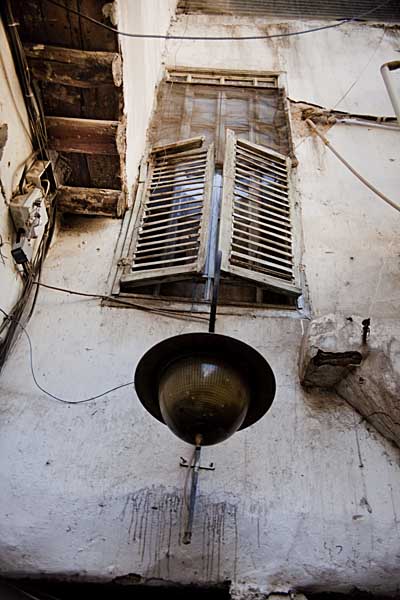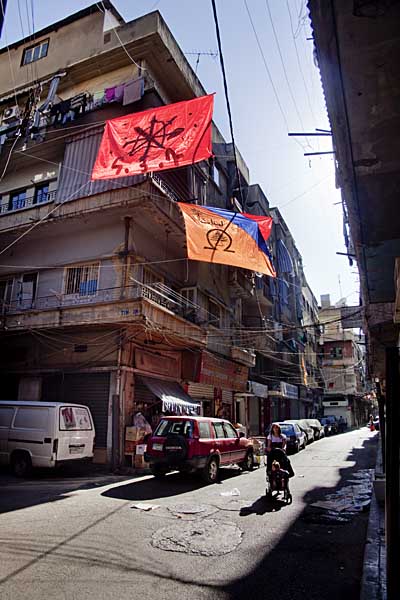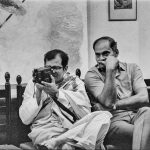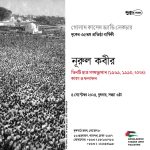By Nizar Qabbani (1923-1998)
I knew that she would be killed
and she knew that I would be killed
both prophecies came true
she fell, like a butterfly, beneath the rubble of (the Age of Ignorance)
and I fell … between the fangs of an age
that devoured poems
the eyes of women and the rose of freedom

I knew that she would be killed
she was beautiful in an age that was ugly
pure in an age that was contaminated
noble in the age of hoodlums
She was a rare pearl
amidst the piles of artificial pearls
a unique woman amidst the stacks of artificial women
I knew that she would be killed
because her eyes were clear as two emerald rivers
and her hair was long as a mawwal of Baghdad
the nerves of this homeland
cannot bear the density of green
cannot bear the sight of a million palm trees
gathering in Balqis’s eyes.

I knew that she would be killed
for the compass of her pride was greater than the compass of the Peninsula
Her heritage did not permit her
to live in the age of decadence
her luminary nature
did not permit her to live in the dark
In the intensity of her pride
she believed that the earth was too small for her
so she packed her suitcases
and withdrew on tiptoes without telling a soul…
She was not afraid that the homeland would kill her
but she was afraid that the homeland
would kill itself
Like a cloud laden with poetry
she rained over my notebooks
wine…honey…and sparrows
red rubies
and sprinkled across my feelings
sails…and birds
and jasmine moons
After her departure
the age of thirst began
the age of water came to an end
I always felt that she was leaving
In her eyes, there were always sails
being made for departure
airplanes crouching on her lashes
preparing to take off..
In her hand bag-ever since I married her –
there was a passport… and an airplane ticket
visas to enter countries she had never visited
When I used to ask her
And why do you have all these documents in your handbag?
She would answer:
because I have a date with a rainbow
After they handed me her handbag
which they found under the rubble
and I saw her passport
the airplane ticket
the entry visas
I knew that I had not married Balquis Al-Rawi
but had married a rainbow…
When a beautiful women dies
the earth loses its balance
the moon declares mourning for a hundred years
and poetry becomes unemployed
Balqis Al-Rawi
Balqis Al-Rawi
Balqis Al-Rawi
I used to love the cadence of her name
hold on to its ring
I used to fear attaching my name to it
in case I muddied the waters of the lake
and disfigured the beauty of the symphony
It was not for this woman to live any longer
not did she wish to live any longer
she is akin to the candles and lanterns and like the poetic moment she
needs to explode before the last line……
Nizar Qabbani (1923-1998) was born in Damascus into a prominent family, and began his professional life as a diplomat as well as a poet. A period in Spain brought him to a deep awareness of the historical links between Andaluc?a and its vanished Arab masters – he felt himself at home in this place haunted by ‘black pearls’ from Damascus. His sister’s suicide over a forced marriage was another turning point in his conscious embrace of the feminine cause. He began life as playboy, but ended up in a very different place, giving voice to the voiceless women who live behind the gates, both figurative and literal, of Arab homes. His awe at the beauty and strength of women – mother, sister, wife and lover – or just ordinary village girl, is expressed over and over again, and his love and tenderness for all of them is a tribute paid in words of myrrh and jasmine. There is a strong sense of place in many of his poems, conjuring up his beloved home town, perhaps all the stronger for the pain of exile. So he often evokes his ‘spiced childhood’ in Damascus:
Its beds of lilac, boxwood and cherry-plum,
the fountain’s blue eye that looked at the house,
and the jasmine creeping on the bedroom’s shoulder..
At the heart of his work stands the figure of Balqis Al-Rawi, his beloved second wife, who was killed in a terrorist bombing in Beirut. His ‘Twelve Roses in Balqis’s Hair’ is a lament to stand beside that of Orpheus, as eloquent a thing as ever was wrung from the suffering heart of man.





Leave a Reply
You must be logged in to post a comment.